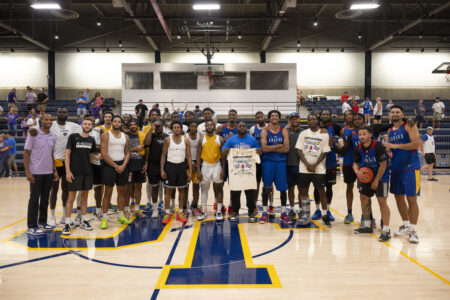Woodling: Self’s contract a rarity
Uh, oh. Another 10-year contract.
That was my knee-jerk reaction to the news Kansas University had awarded men’s basketball coach Bill Self a 10-year pact.
Decade-long deals for coaches are rare. I know of only two and, in both cases, the recipient failed to make it to the max.
Self is, in fact, the second KU coach to secure a 10-year contract. The first was Jack Mitchell, a gregarious football mentor who endeared himself to the KU masses with that famous 23-7 victory over previously unbeaten Missouri at the end of the 1960 season.
A few months later, in March of 1961, the Kansas Board of Regents approved a recommendation that guaranteed Mitchell would remain the Jayhawks’ football coach through 1971.
In 1966, however, in the wake of a 2-7-1 tailspin – the tie was a soporific 3-3 wash against a dreadful Kansas State team – KU terminated Mitchell’s contract.
How much did it cost to buy Mitchell out? A whopping $56,000 paid in $14,000 installments over the next four years. In today’s dollars, 14 grand is a drop in the bucket for Kansas Athletics Inc.
The other 10-year coaching contract I recall is the one the Chiefs gave Hank Stram a year after Kansas City won Super Bowl IV in 1970. That package called for Stram to receive the then-princely sum of $100,000 a year for the next decade.
How long did Stram last? Three years. He was fired after the 1974 season.
OK, I hear what you’re saying. Mitchell and Stram were football coaches, and the shelf life of a football coach is usually shorter than a basketball coach, particularly at Kansas, a school where the average basketball coaching tenure is a relatively astronomical 13.8 years.
About three weeks ago, Kansas also awarded football coach Mark Mangino a new contract. Mangino’s pact runs only through 2012, however, while Self is guaranteed employment through 2018.
Back in Mitchell’s heyday, the KU faculty was generally outraged that a football coach would be treated so royally because, in addition to the long contract, Mitchell was earning a whopping $20,000 a year.
Not so much do professors grouse anymore, though. In contemporary times, faculty – most of them, anyway – understand how the marketplace has driven coaching salaries through the atrium.
Who would have believed even 10 years ago that the KU men’s basketball coach would be banking $3 million a year and the Jayhawks’ football coach would be pocketing $2.3 million?
When Mangino was hired prior to the 2002 season, his total annual package was estimated at about $600,000. When Self came here prior to the 2003-2004 season, his total income was about $1.3 million.
Thus Mangino’s take-home pay has nearly quadrupled after six seasons on Mount Oread while Self’s has more than doubled his bank account after five years.
In the big picture, the bottom may have fallen out of the housing market and the nation’s economy may be in the pits, but coaching salaries continue to skyrocket, Kevlar vests to inflationary bullets.







